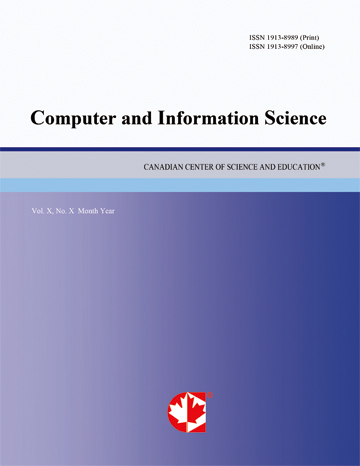Audio Fingerprint Extraction Using an Adapted Computational Geometry Algorithm
- Marios Poulos
- Ioannis Deliyannis
- Andreas Floros
Abstract
This work presents an adapted version of the Computational Geometry Algorithm (CGA) used for the development of audio-based applications and services. The CGA algorithm analyses an audio stream and produces a unique set of points that can be considered to be the audio data “fingerprint”. It is shown that this fingerprint is coding-independent, a fact that can render the proposed algorithm suitable for multiple purposes, including the categorisation of content identity and the identification of audio clips, hence providing support for the realisation of audio sorting/searching tasks and services. Additionally, based on specific novel applications and services, the overall algorithmic performance and efficiency characteristics of the CGA algorithm are discussed and analysed.
- Full Text:
 PDF
PDF
- DOI:10.5539/cis.v5n6p88
Journal Metrics
WJCI (2022): 0.636
Impact Factor 2022 (by WJCI): 0.419
h-index (January 2024): 43
i10-index (January 2024): 193
h5-index (January 2024): N/A
h5-median(January 2024): N/A
( The data was calculated based on Google Scholar Citations. Click Here to Learn More. )
Index
- BASE (Bielefeld Academic Search Engine)
- CNKI Scholar
- CrossRef
- DBLP (2008-2019)
- EuroPub Database
- Excellence in Research for Australia (ERA)
- Genamics JournalSeek
- GETIT@YALE (Yale University Library)
- Google Scholar
- Harvard Library
- Infotrieve
- Mendeley
- Open policy finder
- ResearchGate
- Scilit
- The Keepers Registry
- UCR Library
- WJCI Report
- WorldCat
Contact
- Chris LeeEditorial Assistant
- cis@ccsenet.org
